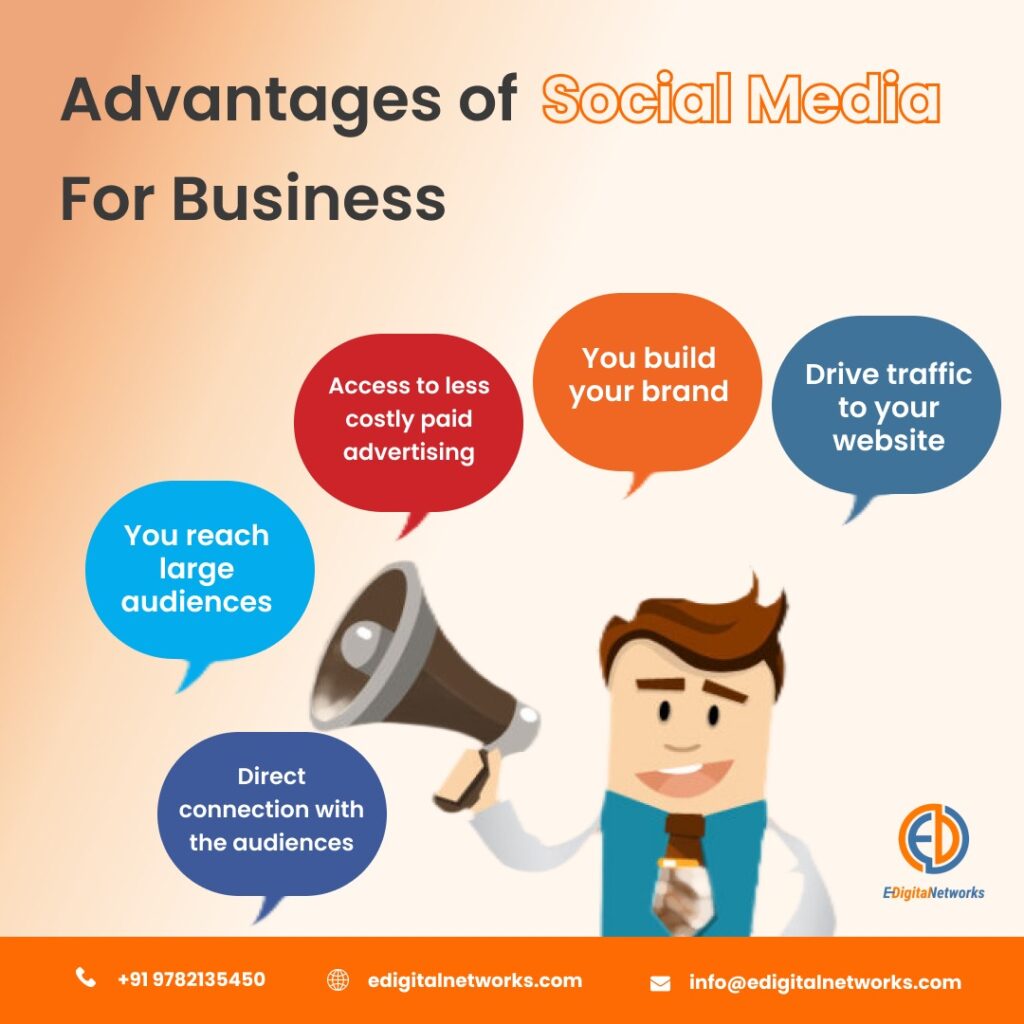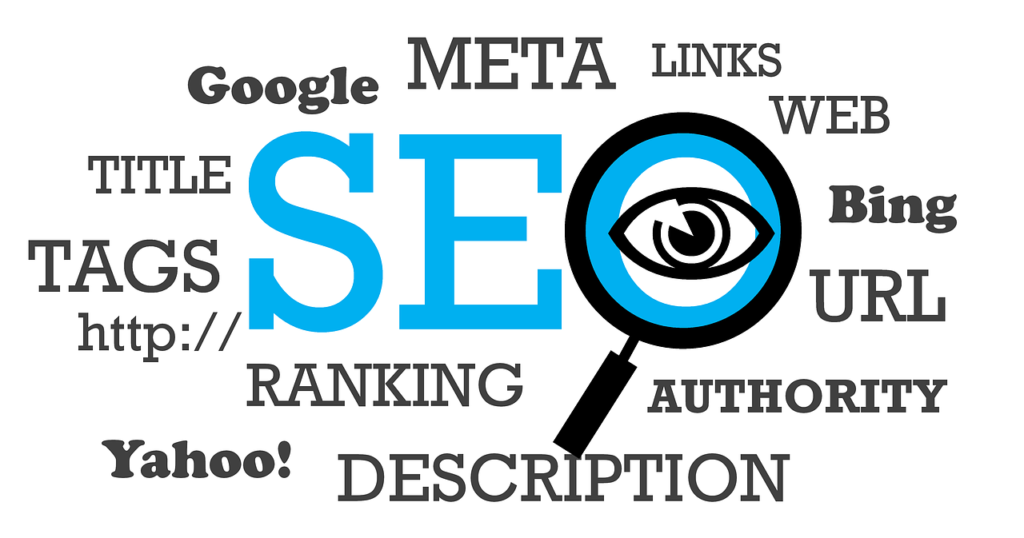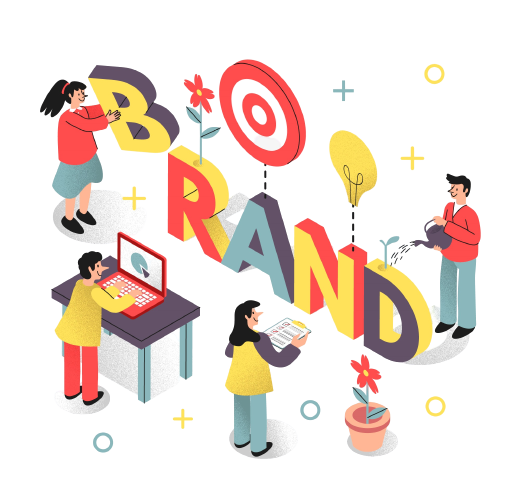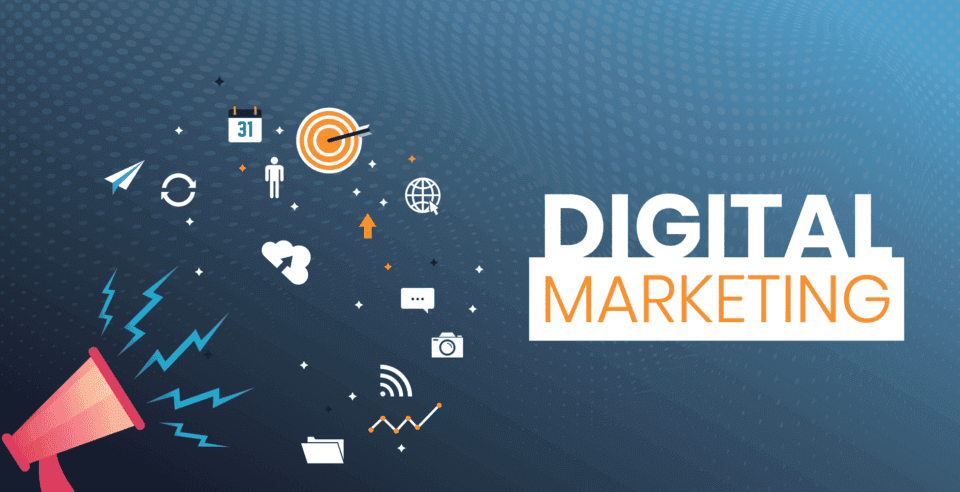In today’s fast-paced digital world, brand promotion has become a cornerstone of business success. As technology advances and consumer behavior evolves, companies must adapt their strategies to stay ahead of the curve. Brand promotion, once a straightforward task of creating awareness through traditional media, has now transformed into a complex, multifaceted endeavor that leverages digital tools and platforms. This shift is not merely a trend but a necessity for modern businesses aiming to capture and maintain consumer interest.
Brand promotion services have evolved significantly over the years. In the past, these services were primarily focused on print advertisements, radio spots, and television commercials. However, the rise of digital marketing agencies has dramatically changed this landscape. The advent of the internet and social media has introduced a wealth of new channels and tools for brand promotion, making it possible to reach and engage with audiences on a more personal level. This evolution has brought about the need for advanced brand promotion services that utilize sophisticated technologies and strategies to maximize brand impact.
Advanced website marketing services are not just about keeping up with trends; they are about setting them. For digital marketing agencies, integrating these advanced services is crucial to maintaining relevance and delivering value to clients. These services encompass a wide range of innovative techniques, from data-driven insights and AI-powered content creation to highly targeted advertising and real-time engagement strategies. Understanding and implementing these advanced methods is essential for agencies that want to stay competitive and provide their clients with cutting-edge solutions.
Understanding Brand Promotion Services
Brand promotion services encompass a variety of strategies and tools designed to enhance a brand’s visibility and reputation. At its core, brand promotion is about creating a positive perception of a brand in the minds of consumers, ultimately driving engagement and sales. This process involves multiple components, each playing a crucial role in building and maintaining a brand’s image.

Definition of Brand Promotion Services
Brand promotion services are designed to increase a brand’s visibility, attract potential customers, and strengthen its overall market presence. These services include activities such as advertising, public relations, and digital marketing. The goal is to create a favorable image of the brand and communicate its value proposition effectively to the target audience.
Traditional vs. Advanced Brand Promotion Services
Traditional brand promotion methods typically involve print media, broadcast advertising, and outdoor signage. While these methods can be effective, they often lack the precision and flexibility offered by modern digital techniques. Advanced brand promotion services, on the other hand, leverage digital tools and technologies to achieve more targeted and measurable results.
For instance, while traditional methods might reach a broad audience, advanced services use data analytics to target specific demographics with personalized messages. This shift from a broad-brush approach to a more tailored strategy allows brands to engage with their audience in a more meaningful way.
Key Components of Effective Brand Promotion
Effective brand promotion requires a multifaceted approach that integrates various components:
- Content Creation: High-quality, relevant content is the backbone of any successful brand promotion strategy. This includes everything from blog posts and social media updates to videos and infographics. The key is to create content that resonates with the target audience and reflects the brand’s values.
- Social Media: Social media platforms are powerful tools for brand promotion. They provide a space for brands to engage with their audience, share content, and build relationships. Effective use of social media involves not only posting regularly but also interacting with followers, running targeted ads, and analyzing engagement metrics.
- SEO (Search Engine Optimization): SEO is crucial for ensuring that a brand’s website and content are easily discoverable by search engines. By optimizing for relevant keywords, improving site structure, and creating valuable content, brands can improve their search engine rankings and attract organic traffic.

The Evolution of Digital Marketing Agencies
Historical Perspective on Digital Marketing Agencies
Digital marketing agencies have come a long way since their inception. In the early days of the Internet, digital marketing was primarily focused on basic website development and online advertising. Online marketing companies often relied on traditional marketing methods and applied them to the digital realm, which provided limited insights into consumer behavior and engagement.
As the internet evolved, so did digital marketing.
The introduction of search engines, social media platforms, and mobile technology transformed how brands interacted with their audience. Digital marketing agencies had to adapt quickly, developing new strategies and tools to stay relevant in an increasingly complex landscape.
Transition from Traditional Marketing Methods to Digital Strategies
The shift from traditional marketing methods to digital strategies marked a significant turning point for digital marketing agencies. Traditional marketing, with its reliance on print ads, TV spots, and radio commercials, often lacked the immediacy and interactivity that digital platforms offered. Digital marketing introduced new possibilities, such as real-time feedback, targeted advertising, and data-driven decision-making.
This transition was driven by the growing importance of online presence and consumer behavior changes.
With the rise of social media, search engines, and mobile devices, consumers began to expect more personalized and engaging experiences. Digital marketing agencies responded by embracing new technologies and methodologies, including content marketing, SEO, and social media management.
How the Rise of Digital Marketing Has Increased the Need for Advanced Brand Promotion
The rise of digital marketing has created a more competitive environment, where brands must work harder to stand out. As digital platforms have become more sophisticated, so too have the strategies for brand promotion. Advanced brand promotion services have emerged as a response to the need for more effective and efficient ways to capture and retain consumer attention.
Digital marketing agencies now face the challenge of staying ahead of evolving trends and technologies. This includes adopting advanced tools for data analysis, automation, and personalized marketing. As consumer expectations continue to rise, agencies must leverage these advanced brand promotion services to deliver exceptional results for their clients.
Benefits of Advanced Brand Promotion Services
In the ever-evolving world of digital marketing, advanced brand promotion services have become a game-changer for businesses striving to make a significant impact. These services offer a host of benefits that go beyond traditional methods, providing companies with innovative tools and strategies to enhance their brand’s presence and effectiveness in the market.
Enhanced Visibility
One of the primary benefits of advanced brand promotion services is the substantial increase in brand visibility. Traditional advertising methods, while still relevant, often lack the precision and reach of modern techniques. Advanced brand promotion leverages cutting-edge tools and technologies such as AI-driven content optimization, programmatic advertising, and dynamic ad placements to amplify a brand’s presence across multiple channels.
By utilizing data analytics and machine learning, businesses can ensure their brand messages are strategically placed where they’ll be most effective, reaching the right audience at the right time. This heightened visibility translates to increased brand recognition and awareness, crucial elements for standing out in a crowded market.
Targeted Reach
Advanced brand promotion services excel in delivering targeted reach. Unlike traditional advertising, which often casts a wide net, modern techniques use data-driven strategies to hone in on specific demographics. By analyzing consumer behavior, preferences, and purchasing patterns, businesses can craft highly personalized messages that resonate with their target audience.
For instance, programmatic advertising platforms use real-time data to serve ads to users based on their online activity, ensuring that brand promotions reach individuals who are more likely to engage with the content. This precision not only maximizes the effectiveness of marketing campaigns but also enhances the overall return on investment.
Improved Engagement
Engagement is the cornerstone of successful brand promotion, and advanced services provide the tools to foster meaningful interactions. Through innovative platforms and technologies, businesses can create engaging content that captures audience attention and drives interaction. Social media platforms, for example, offer a range of features such as live videos, stories, and interactive polls that facilitate real-time engagement with followers.
Additionally, advanced tools like chatbots and AI-driven customer service solutions enhance customer interaction by providing instant, personalized responses to inquiries. These advancements in engagement strategies help build stronger relationships between brands and their audiences, leading to increased loyalty and brand advocacy.
Conversion Optimization
Turning leads into loyal customers is a critical aspect of brand promotion, and advanced services are designed to optimize this process.
Techniques such as A/B testing, personalized email marketing, and retargeting ads play a significant role in conversion optimization. By continuously analyzing data and adjusting strategies based on performance metrics, businesses can refine their approach to maximize conversions.
For example, A/B testing different versions of a landing page can reveal which design elements and calls-to-action drive the highest conversion rates. This iterative approach ensures that marketing efforts are always aligned with the goal of converting prospects into customers.
Case Studies or Examples
The effectiveness of advanced brand promotion services is best illustrated through real-world examples.
Take the case of a global e-commerce brand that used AI-driven content creation to enhance its social media strategy. By leveraging machine learning algorithms to analyze audience preferences and trends, the brand was able to produce highly relevant and engaging content that resonated with its followers. As a result, the brand saw a significant increase in engagement rates and conversion metrics.
Another example is a tech company that implemented programmatic advertising to target specific business sectors. The precision of the ads led to a substantial boost in qualified leads and a notable increase in sales.
Key Features of Advanced Brand Promotion Services
Advanced brand promotion services incorporate several key features that distinguish them from traditional methods. These features are designed to address the complexities of modern marketing and deliver superior results.
Innovative Content Strategies
AI and machine learning have revolutionized content creation, allowing businesses to develop more relevant and engaging content. AI-powered tools can analyze vast amounts of data to identify trends and generate content that aligns with audience interests.
For instance, machine learning algorithms can predict which topics will resonate with users based on their past interactions, enabling brands to create content that is both timely and impactful. This innovation not only enhances the quality of content but also streamlines the content creation process, making it more efficient and effective.

Advanced SEO Techniques
SEO is no longer just about optimizing for keywords; it has evolved to include advanced techniques that cater to the changing search landscape.
Voice search optimization, for example, is becoming increasingly important as more consumers use voice-activated devices. Brands must adapt their SEO strategies to include natural language queries and conversational phrases. Additionally, local SEO techniques are crucial for businesses looking to attract customers in specific geographic areas. By optimizing for local search terms and managing online reviews, businesses can improve their visibility in local search results.
Social Media Management
Effective social media management involves more than just posting updates; it requires a strategic approach to integration and analytics. Advanced tools enable businesses to synchronize their social media efforts across multiple platforms, ensuring a cohesive brand presence. Analytics tools provide insights into engagement metrics, allowing brands to track the performance of their social media campaigns and adjust strategies accordingly.
This integration and analysis help businesses make data-driven decisions and optimize their social media strategy for maximum impact.
Influencer Partnerships
Influencer marketing has become a powerful tool for brand promotion, but managing these partnerships requires a strategic approach. Advanced brand promotion services include tools for selecting and managing influencer relationships. These tools help brands identify influencers who align with their values and target audience.
Additionally, platforms that track influencer performance provide insights into the effectiveness of partnerships, allowing businesses to measure the impact of their influencer campaigns and make informed decisions about future collaborations.
Data Analytics and Insights
Data is a crucial component of advanced brand promotion services. By leveraging data analytics, businesses can gain valuable insights into consumer behavior and campaign performance.
Advanced analytics tools provide detailed reports on metrics such as engagement rates, conversion rates, and ROI. These insights enable brands to make data-driven decisions and refine their marketing strategies for better results. For example, analyzing data from a digital campaign can reveal which channels and messages are most effective, allowing businesses to allocate resources more efficiently.
Integrating Brand Promotion Services with Digital Marketing Strategies
Aligning Brand Promotion with Overall Digital Marketing Goals
Successful brand promotion requires alignment with broader digital marketing goals. Businesses must ensure that their brand promotion strategies complement their overall digital marketing efforts.
This alignment involves coordinating brand messaging across various channels, from social media and content marketing to email campaigns and SEO. By integrating brand promotion with digital marketing objectives, businesses can create a cohesive and unified strategy that drives better results.
How to Effectively Combine SEO, Content Marketing, and Social Media
Combining SEO, content marketing, and social media is essential for a comprehensive brand promotion strategy. SEO ensures that content is discoverable through search engines, content marketing provides valuable and engaging material, and social media amplifies the reach of that content.
By aligning these elements, businesses can create a synergistic effect that enhances their brand’s visibility and engagement. For example, optimizing blog posts for SEO and sharing them on social media can drive traffic to the website and increase brand awareness.
Role of Brand Promotion in Multi-Channel Marketing Strategies
In a multi-channel marketing strategy, brand promotion plays a critical role in ensuring consistency and coherence across different channels. Businesses must maintain a unified brand message while adapting their approach to each channel’s unique characteristics.
For instance, while a brand’s social media presence may focus on engaging visuals and interactive content, its email marketing strategy might prioritize personalized offers and detailed information. Integrating brand promotion into these multi-channel strategies ensures that the brand’s message resonates with the audience across various touchpoints.
Real-World Examples of Successful Integration
Real-world examples of successful integration highlight the effectiveness of combining brand promotion services with digital marketing strategies. One example is a global fashion brand that used an integrated approach to launch a new product line. The brand employed SEO to drive traffic to its website, created engaging content to generate interest, and used social media to amplify the campaign.
This cohesive strategy resulted in a successful product launch, with significant increases in online sales and brand visibility. Another example is a tech startup that integrated influencer marketing with its content strategy. By partnering with industry influencers and producing high-quality content, the startup was able to build credibility and attract a loyal customer base.
Challenges in Implementing Advanced Brand Promotion
Advanced brand promotion services offer substantial benefits but come with their own set of challenges. For digital marketing agencies, navigating these obstacles can be crucial for maximizing the effectiveness of their brand promotion efforts. Let’s delve into some common hurdles and explore how agencies can overcome them.
Common Obstacles
One of the most significant challenges agencies face when implementing advanced brand promotion is budget constraints.
High-tech tools and innovative strategies often come with substantial costs, and not every agency has the financial resources to invest in the latest technology or extensive training. Budget limitations can restrict an agency’s ability to fully leverage advanced services, leading to underwhelming results.
Another major obstacle is the lack of expertise.
Advanced brand promotion techniques frequently require specialized knowledge and skills. Agencies may find themselves struggling to keep up with rapidly evolving technologies and methodologies, leading to a gap between potential and actual performance. This lack of expertise can hinder an agency’s ability to implement and optimize advanced strategies effectively.
Solutions and Best Practices
To address budget constraints, agencies should consider prioritizing their investments based on potential ROI. By identifying the most impactful areas for improvement and starting with smaller, more manageable projects, agencies can gradually scale up their efforts. Additionally, exploring partnerships or collaborative projects with other firms can help share costs and resources, making advanced brand promotion services more accessible.
When it comes to overcoming the lack of expertise, continuous education and training are essential. Agencies can invest in professional development programs, attend industry conferences, and participate in webinars to stay updated with the latest trends and technologies. Hiring or consulting with specialists who have experience with advanced brand promotion can also provide valuable insights and skills.
Measuring the Success of Brand Promotion Services
Measuring the success of brand promotion services is crucial for understanding their impact and making data-driven decisions. To effectively gauge performance, agencies must track key performance indicators (KPIs), utilize appropriate tools, and adjust strategies based on insights.
Key Performance Indicators (KPIs)
Key performance indicators are metrics that help measure the effectiveness of brand promotion efforts. Common KPIs include:
- Brand Awareness: Metrics such as reach, impressions, and social media mentions can indicate how well the brand is resonating with its target audience.
- Engagement Rates: Tracking likes, shares, comments, and interactions provides insights into how actively users are engaging with the brand’s content.
- Conversion Rates: Measuring how many leads or interactions turn into actual sales helps assess the effectiveness of brand promotion in driving business results.
- Customer Retention: Monitoring repeat purchases and customer loyalty metrics can reveal how successful the brand promotion is in building long-term relationships.
Tools and Metrics
To track and analyze these KPIs, agencies can use various tools and platforms. Google Analytics, for instance, offers comprehensive insights into website traffic and user behavior. Social media analytics tools such as Hootsuite and Sprout Social provide detailed reports on engagement and reach. For email marketing, platforms like Mailchimp offer metrics on open rates and click-through rates.
Adjusting Strategies
Analyzing performance data allows agencies to refine their strategies. For instance, if engagement rates on social media are lower than expected, it may indicate a need for more engaging content or a different posting schedule. Continuous monitoring and data analysis enables agencies to make informed adjustments, optimizing their brand promotion efforts for better outcomes.
Future Trends in Brand Promotion and Digital Marketing
The landscape of brand promotion and digital marketing is continually evolving, driven by emerging technologies and changing consumer behaviors. Staying ahead of these trends is essential for maintaining a competitive edge.
Emerging Technologies
Emerging technologies such as artificial intelligence (AI) and virtual reality (VR) are transforming brand promotion. AI-powered tools can analyze vast amounts of data to personalize content and predict consumer behavior, while VR offers immersive experiences that can enhance brand engagement. Additionally, advancements in blockchain technology are improving transparency and security in digital advertising, offering new opportunities for brand promotion.
Predictions for the Future
Looking ahead, digital marketing agencies can expect to see increased integration of AI and automation in brand promotion. These technologies will enable more precise targeting, personalized content, and efficient campaign management. Additionally, the rise of voice search and smart devices will necessitate new strategies for optimizing content and engaging with consumers.
Preparing for Trends
To stay ahead of the competition, agencies should invest in understanding and adopting emerging technologies. This involves staying updated with industry trends, experimenting with new tools and techniques, and continuously adapting strategies to leverage the latest advancements. By being proactive and innovative, agencies can ensure they remain at the forefront of brand promotion and digital marketing.
Choosing the Right Brand Promotion Service Provider
Selecting the right service provider for advanced brand promotion is crucial for achieving successful outcomes. Agencies must evaluate potential partners carefully to ensure they align with their needs and goals.
Criteria for Selection
When choosing a service provider, agencies should consider several factors. Look for providers with a proven track record of success in brand promotion. Evaluate their expertise in relevant areas such as SEO, content creation, and social media management. Additionally, assess their ability to tailor strategies to your specific needs and goals.
Questions to Ask
When evaluating potential partners, ask questions about their approach to brand promotion, the technologies they use, and their experience with similar projects. Inquire about their measurement and reporting processes to ensure they provide transparent and actionable insights.
Red Flags
Watch out for red flags such as a lack of clear communication, unrealistic promises, or a focus on quick fixes rather than long-term strategies. A reputable provider should demonstrate a thorough understanding of advanced brand promotion and offer a collaborative approach to achieving your goals.
Case Studies and Success Stories
Examining case studies and success stories can provide valuable insights into the effectiveness of advanced brand promotion services. Detailed examples of digital marketing agencies that have benefited from these services can highlight successful strategies and key takeaways.
Lessons Learned
Key lessons from these case studies include the importance of aligning brand promotion strategies with overall marketing goals and the value of leveraging data and technology for optimization. Agencies can draw inspiration from these examples to enhance their own brand promotion efforts and achieve similar success.
Conclusion
Advanced brand promotion services are indispensable for digital marketing agencies aiming to thrive in today’s competitive landscape. With the benefits of enhanced visibility, targeted reach, and improved engagement, these services offer significant advantages.
By addressing challenges, measuring success, and staying ahead of emerging trends, agencies can effectively leverage advanced brand promotion to drive impressive results. Investing in these services now will position digital marketing agencies for continued growth and success in the evolving digital marketing arena.

